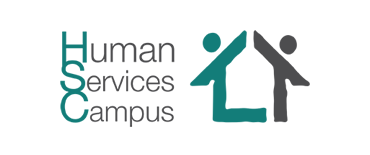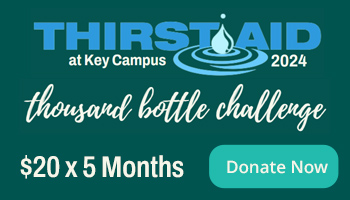Choices and Diagnoses
Choices and Diagnoses
Everyone deserves a healthy life, and that means having a home.
It’s been 14 days since my last post and 27 weeks since losing my sense of smell. While some chemical scents have returned, I also experienced “fake” scents this week. When asking co-workers if there was a waft of baking brownie smell, they looked at me and said, “ah, no.” So there’s that. And I am not unhoused or unsheltered. My privileged “problems” are really minimal.
I have been off social media for a bit. I found myself exhausted from the online activity of 10 weeks’ worth of fundraising for the Leukemia and Lymphoma Society (LLS). That was an adventure! And while I was not the top fundraiser achieving the Woman of the Year title, I did receive surprise recognition with a Mission Integration award. THAT is overwhelmingly meaningful to me. And it means all of my posts and shares of LLS content were noticed; that stories were read; that empathy was built. Money matters, and so does engaging more people to understand the impacts of issues like cancer. Long-term change for patients, caregivers, and family will come through advocacy. That type of change requires hundreds and thousands of people to learn about the issues , challenges, and opportunities.
Similar to the work of “ending homelessness.” Those of us working with people who are unhoused struggle with how and to what degree to “do” advocacy. Whose minds’ are we hoping to change? What change are we hoping to make? This complex issue stymies the best and brightest minds. The length of time it can take to see a real, lasting, systemic change can be downright frustrating. Some people quit. They move on to other jobs, to other issues. Some people, in my opinion, settle for the day-to-day service to individuals, focusing on those starfish.
One reason I took LLS up on their challenge was to diversify how I spend my time. The work at the Human Services Campus and the visions I have for long-term systems change tend to be all-consuming. I was excited to spend time volunteering on another issue. It took me out of my regular bubble of activity. And it gave me a new perspective on health equity.
Talking about cancer has not always been encouraged. I remember in the 1980s it was shocking to hear someone had the “C-word.” When my grandfather was diagnosed and passed away, we barely talked about it in my family. There was a stigma that a cancer diagnosis meant certain and impending death. When my father was diagnosed with cancer, he survived longer than maybe some expected; and he wanted to live to 60 and passed away at 57. Within a month of his passing, I had my first mammogram and there was something “suspicious.” As I walked into a specialist’s office, I dreaded what she might tell me. She started by saying they would need to do a biopsy, and I would have to schedule that for a future date. I lost it. Tears streaming down my face, she asked questions. And I told her my Dad had just died and that he had non-Hodgkins lymphoma and lung cancer. She immediately called for her assistant and did the biopsy right then and there. Fortunately, I have never needed to see her again, because no cancer was found. In 2009, right before my 40th birthday I had a full thyroidectomy and was told afterward that the testing of what was removed showed cancer. I remember taking the call from the doctor, standing alone in my kitchen. It was a quick phone call. And I cried leaning on the counter for a while until my loyal dogs decided to tear me away. I delved into research mode to understand what it meant for me. Was my life expectancy affected?
Here I am. My cancer was “easy” and not life-threatening. Living on medication and essentially permanent hypothyroidism has its downsides. Once a year when I visit with the Endocrinologist, I’m referred to as a “cancer patient.” The rest of the year I don’t really think about it or label myself that way.
And talking about cancer has become much easier in the last 40 years. Advancements have been made in treatments. Is there a cure? We can leave that debate for another day. My point here is that no one chooses to get cancer. We may make choices that lead to certain cancers developing; my Dad was a lifelong smoker and that probably contributed to his lung cancer. We don’t throw people away for those choices and diagnoses.
When and how can we move the conversation about people who are unhoused from one of questioning and blame, to acceptance that shit happens. People do make choices that may have consequences that lead to the loss of their home. We don’t have to know their entire life history to decide to help them. We don’t have to know if they are going to be successful after we help them. We need to value their lives and demonstrate that their humanity matters.
When will we move past the stigma of homelessness, mental illness, and substance abuse to recognize that it’s OK to talk about these issues? And that we must understand the challenges and create solutions.
Everyone deserves a healthy life, and that means having a home.
I’m not done volunteering for LLS if they will have me! I’m just getting started on using my voice to advocate for health equity which includes equitable housing opportunities.
About the Human Services Campus
Founded in 2005, the Human Services Campus is a collaborative force of partner organizations united on one campus to end homelessness. Located just west of downtown Phoenix, 16 independent agencies on the Campus see nearly 1,000 individuals every day, offering a holistic range of client services including: reunification with family and friends; mental, physical and dental health; shelter; employment; meals; legal services and housing. Having all of these resources in one location with intra-agency communications makes it more feasible to provide a customized engagement for each client to help end their homelessness. For more information, visit www.hsc-az.org.



